
Common: ‘The Dreamer, The Believer’ Is ‘Art,’ ‘Sweet’ Is ‘War’
Common knows what it means to dream and subsequently believe in something. The Southside Chicago native is light years away from where he started yet he still manages to connect with his beginnings on the most basic level. While his ninth LP, 'The Dreamer, The Believer,' has been receiving positive responses amongst critics, he's simultaneously promoting his latest dramatic turn on the AMC drama, 'Hell on Wheels'. His start as Common Sense almost 20 years ago set him on this path, but after making his rounds in the business and experimenting along the way, he's somehow found his way back to his roots. He does all this while exuding an air of maturity that can only be obtained by having lived through success and disappointment. The rhymer is beyond proving his worth to anyone. It's an exciting prospect, as it's encouraged the inflections of a 19-year-old Lonnie Rashid Lynn, two decades later.
'The Dreamer, The Believer' will be the first full album Common has created with his long-time producer No I.D., since they last collaborated on 1994's 'Resurrection.' His release of the lead single 'Blue Sky' subtly reminded listeners of his signature clarity and wit -- particularly over a No I.D. beat. But his debut of the track 'Sweet' forcefully reminds fans what school of hip-hop Common was raised in. With anticipation for the album reaching exorbitant heights and his role on 'Hell on Wheels' gaining critical acclaim, one could say Common's achieved his dreams, although he wouldn't say so. The BoomBox spoke with the MC about ghetto dreams he keeps close, possible collaborations and how much farther he has to reach the mountaintop.
What's the story behind the title of 'The Dreamer, The Believer'?
I initially had the song but I thought of the album being called 'The Believer.' It was just one day when I was in the studio with No I.D. He was making the beat for 'The Dreamer,' and I was like, 'Yo. I'm a dreamer man. That would be a dope title for an album too. Which one should I call it? 'The Dreamer' or 'The Believer'?" He was like, "Man, you should call it both and make it an A side and a B side." The initial thought was to make it an A side and a B side, you know, how you used to have both sides on tapes. But we just ended up making it just one piece of work that just really accentuates the idea: If you have dreams, you have to believe in them. You have to believe in yourself to reach those dreams, to achieve those dreams.
You both achieved a solid body of work with this one. The album sounds really cohesive.
I think one of our main creative goals was to create a great piece of art. Something that people could appreciate forever. We made the whole album while inspired by hip-hop. It's just about how much I love hip-hop, that's really what I wanted to get across in the music.
You and No I.D. haven't worked together in something like 12 years. A lot of people feel like your best work was when you both collaborated. Did you guys have a quiet falling out?
I feel like we definitely had our own disagreements. I mean, I had goals to branch out and try different producers, and I think, you know, he obviously wanted to keep growing and expanding... At the core of it, we definitely had some differences, but they got resolved as we grew as men.
It's funny how things seem to have come full circle. Kanye always talks about how No I.D. was a sort of mentor for him. And he ended up being the one to bring you guys back together. How exactly did you reunite?
We got together, exactly how you just described. Well in many ways, Kanye was working on his album '808s [& Heartbreak]' and the album before that one, No I.D. was around and we just started getting cool again, remembering our friendship and that was important to us. From there, we talked about doing songs and I'd be around but the focus was on 'Ye's album. We were all there to support 'Ye. Once 'Ye was done, No I.D. got his own studio in L.A. and said, "Man, come out to the studio." I was in the transition of labels trying to figure out what I wanted to do and he was a motivating factor really, like, "C'mon man, let's get this music done." He had beats ready! 'Ghetto Dreams' was the first song we did and he had that joint, played it and it just started speaking to me. You can't deny that. You can't deny the music -- the music is what it's all about.
How did 'Sweet' come about? After a first listen, it sounded like someone made you really upset and it prompted a young Common Sense to arrive on the track.
Yeah, I mean, for me it was like, one of the things I kept being reminded of every time I went to the studio. [I said], "Man, you're a hip-hop artist. You love hip-hop." And I'm also reminded of who I am, I'm a dude that's aware. I'm a God-loving human being, but I'm also a dude that comes from Southside Chicago that's done certain things in the street. I'm not trying to act like I was the biggest gangster but I'm just a real dude from the Chi, that's been out in the streets enough... So I can't deny myself, I think the fact that you get a song like 'Sweet' on this album is because of that. I can't deny that I can get raw if I need to, if I have to. It is what it is. But it was also sparked by some of my guys talking in the studio like, "Man, people don't talk about you... Like, when people get to talking about their top five, they don't even mention you." And they kind of fire me up, to where I'm like, "You're right."
So when Dion [No I.D.] made that beat for 'Sweet,' I was like, "Man. This the one I gotta go in on. I'ma have to go raw, go hard on this one." That's why I'm on there talking like, "Yo. I'm the hottest MC. Who want it?" I came from the mentality of, "Man, I'm an MC. I'm the greatest and who wants to challenge it?" That's what we did as MCs, so I just wanted to do that again. What you hear on the chorus, is just like, me going off, just being out here looking like, "Man, this stuff is soft." Sometimes you just feel like that, you know? And it may not even be a weak song but you might just be like, "I'm in the mood for something raw! I ain't tryna hear that soft stuff." But it gave me a good example of ways to go in, to go at anyone that may be in that category, because it ain't, you know, one guy -- it's different people that may sit in that category. So it gave me something, or an example of rappers to charge at, to go to war for.
In keeping with the 'Dreamer' theme, you and Nas collaborated on 'Ghetto Dreams.' Again, the delivery on this is reminiscent of a younger you. Did you purposefully bring Common Sense back out for this one? Also, how fresh are those particular dreams in your mind?
I definitely feel like I tapped into me, into some of my dreams that I still do have. Like, the chick that comes around, looking good and all that. 'Ghetto Dreams' was like me saying, "I wanna keep coming up. I wanna keep rising." And the type of woman I'm with is still an example of me on the rise. Like, when you see me looking good, you see my lady looking good too. She holds me down. It's like that type of thing. So yeah, I definitely still have those dreams. While I was tapping into me, it definitely represents some of my Chicago guys, and just everyday people who wanna rise.
Watch Common's 'Sweet'
You've spoken on possibly doing a full collaborative project with Nas. Who else would you do that sort of LP with?
I'd definitely want to do something with Nas and we're chopping it up about doing something like that. I'd like to do something with Q-Tip too, because we'd always talked about that. Those are the two that I'd truly enjoy doing an album with, it would turn out right. I mean, I'd love to do an album with Mos [Def] too.
I read that one of your goals is to reach Will Smith levels as an actor-rapper. What does acting give you that rapping can't?
It actually provides a different form of expression. As an actor, you could become anything you want -- from a corrupt police officer to Martin Luther King. I feel like I learn a lot when I act. If I'm playing a chef, I'm learning about being a chef, if I play a martial artist, I really pick up being a martial artist. So I love that, the wide range of expression that's allowed, because you know, point blank in hip-hop, if you start expressing some things that may be your true heartfelt feelings, people might be like, "Aww, man...' Seems like to me, in rap, there's a certain boundary that you can't pass with your expressions and I think the boundaries are starting to get broken down more, but when I came with 'Electric Circus,' people were like, "Aww, man. What is this?" And I'll say, maybe some songs could've been better, but there was still some good music on there. People didn't wanna hear Common doing that.
What's been your favorite role so far?
My favorite role is probably this one I'm playing now in AMC's 'Hell on Wheels.' That character is so complex and strong and has so much depth. I mean, you're playing a freed slave. Someone who's been through slavery but you're fighting for your life, taking a stand and fighting for your life everywhere you go. At any moment a wingman could just shoot you and throw you in the river and not be held accountable for it. Then to play that role and have to deal with the complexities of my character being mixed, his father being white and his mother being black... And being taken to the Big House or the slavemaster's quarters, being taught to read and then put out to be a slave, it's like... There are a lot of things you're going through and as an actor you always want to know the challenge that the role will allow you to express. So that's my favorite role to date. Another favorite as far as film goes is 'Smokin' Aces,' which was my first film.
A lot of us who remember your career debut in 1992, know that your career has had countless leaps to get to this point. Recently on Twitter, a follower said you're at the mountaintop. You disagreed. What would have to happen for you to believe you had arrived?
[Laughs] Man, I'd have to an Oscar in my hand, like three more Grammys, a couple schools opened up in different parts of the nation, helping out the youth... And my family, with a few kids, you know? Also, I'd have to have my film production company putting out hundred million dollar movies in a year or two.
Watch 'Common on Working on Hell on Wheels'
More From TheBoombox
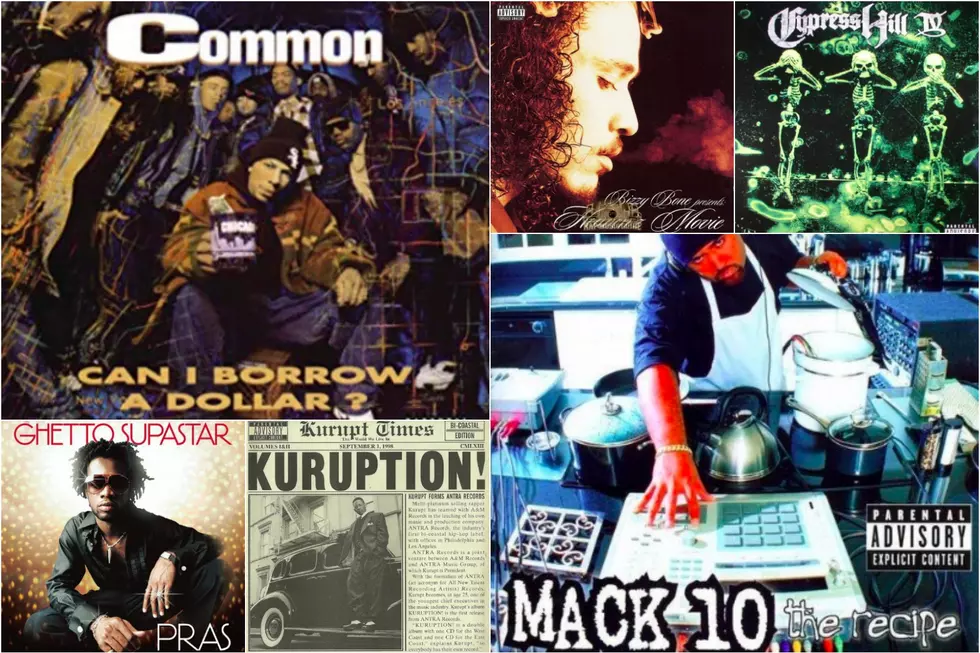
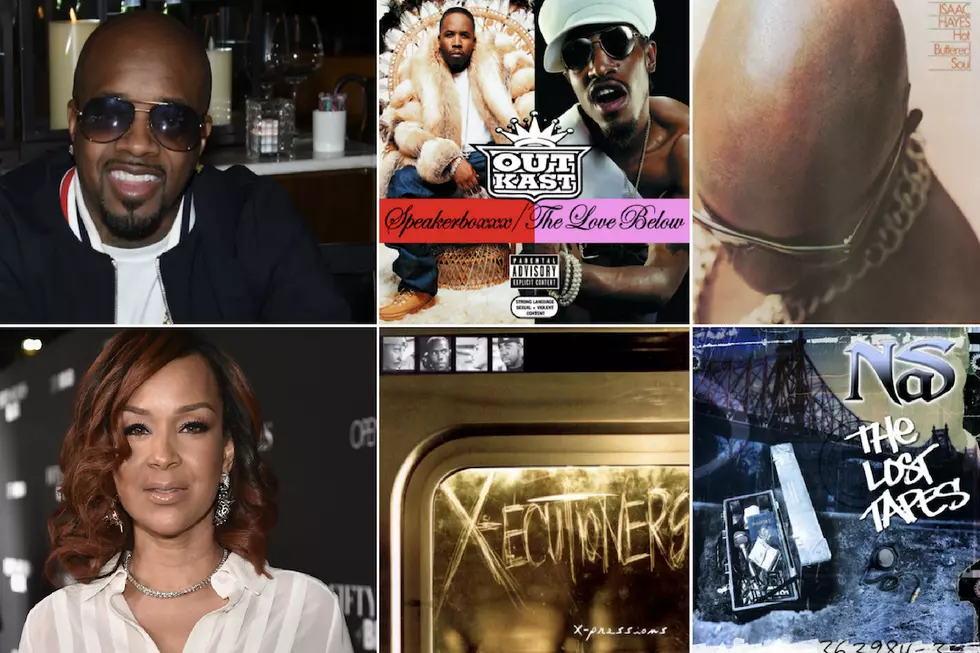
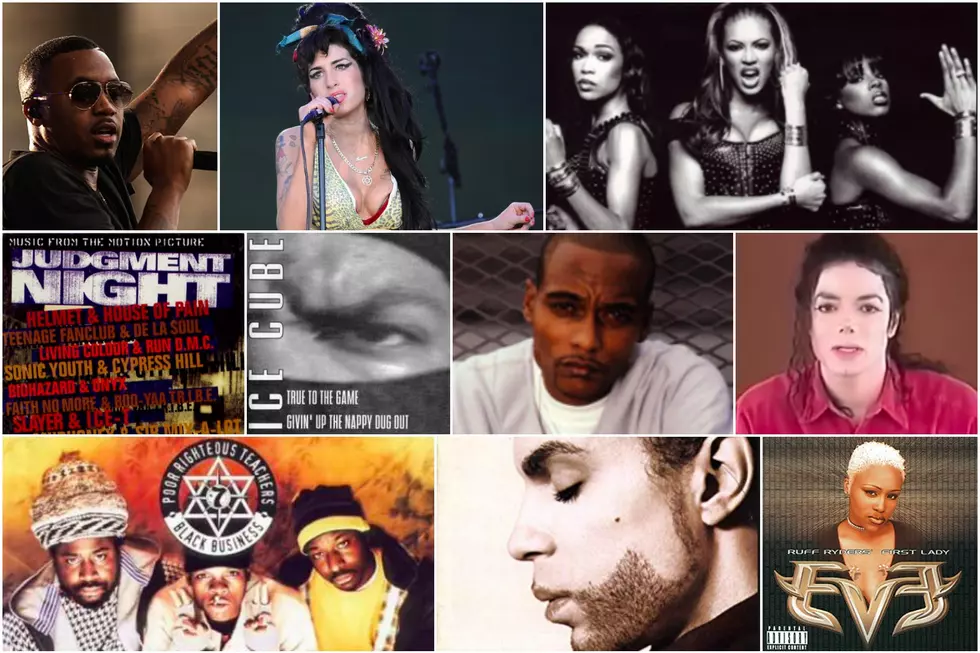

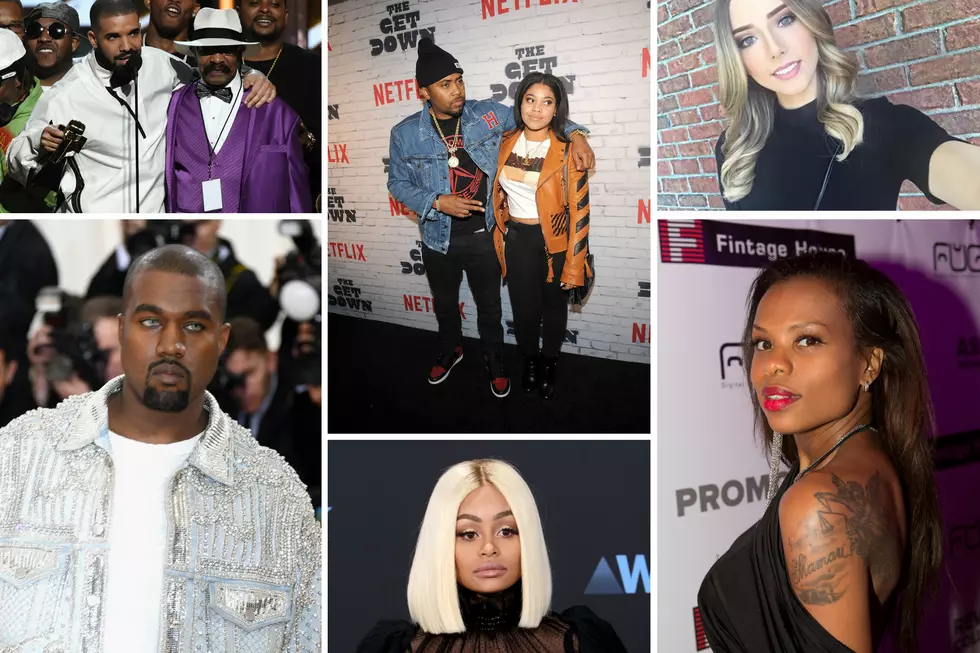


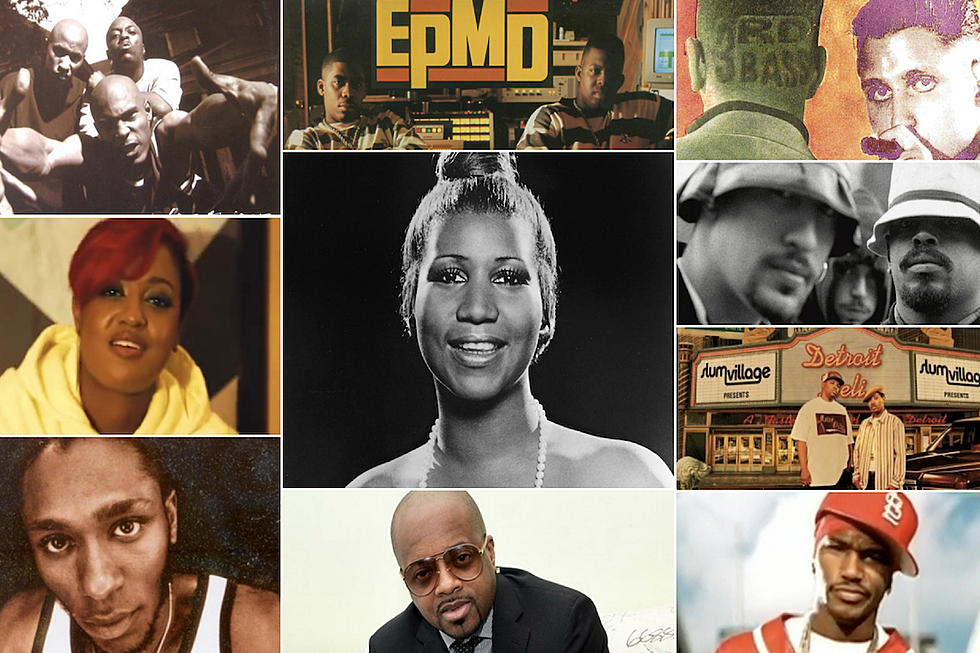
![Nas Names His Top Five Hip-Hop Songs of All-Time [VIDEO]](http://townsquare.media/site/625/files/2018/06/nas.jpg?w=980&q=75)
